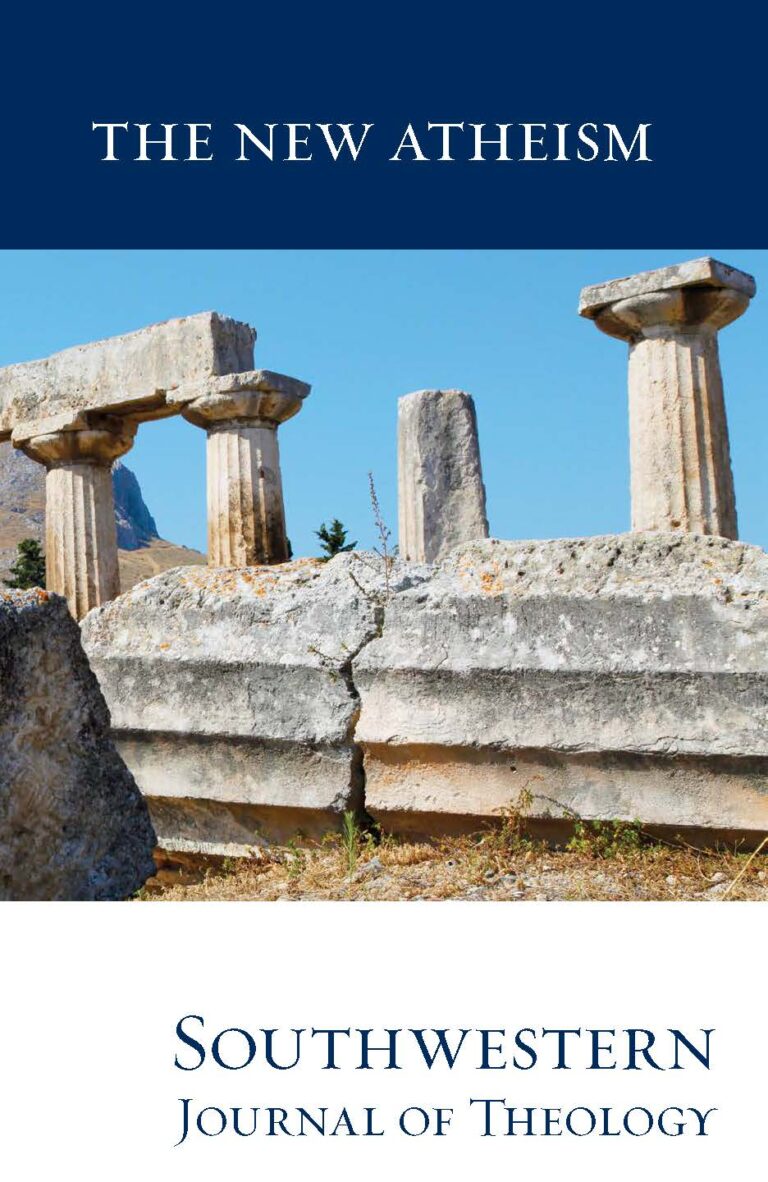
The New Atheism
Southwestern Journal of Theology
Volume 54, No. 1 – Fall 2011
Managing Editor: Malcolm B. Yarnell III
By Nick Spencer, Robert White, and Virginia Vroblesky. Grand Rapids: Brazos, 2009. 288 pages. $16.99.
Christianity, Climate Change, and Sustainable Living concentrates on the issue of climate change and responds to it from a Christian perspective. The book consists of three parts dealing with science, theology, and practice. The purpose of the book is to study the relationship of Christian faith to climate change and “sustainable living” (4). As a consequence of this exploration, the authors encourage readers “to understand” the reality of climate change—its causes and effects, “to envision the solution,” and “to take their responsibilities seriously” (8).
The book is appreciated for two unique contributions. First, chapter 4 offers a study of ecology based on Isaiah 40–66, which is not so much a “substitute for the modern concept of sustainability, but an inspiring vision of what sustainable living could look like” (115). Few volumes intensively relate sustainable living with Isaiah 40–66 as this book does. Second, in chapter 6, the authors envisage a sustainable society in the future. Based upon the principles presented in previous chapters, the authors draw a vision of what sustainable living might look like if we lived according to the principles which they explore and explain.
This book is helpful in three ways. First, the book is very practical, offering its readers detailed “know-how” for living an ecologically well-balanced life, specifically in chapter 7. Second, the authors properly point out the spirituality that lies behind the issue of the global growth of greenhouse gases. Third, the book provides considerable helpful resources for further study of the environment.
Despite these profitable achievements, Christianity, Climate Change, and Sustainable Living needs three areas of improvement. First, the authors do not discuss opposing viewpoints. For example, providing scientific data, scholars in other evangelical circles assert that the current climate change is natural and is not the consequence of human activities. It would be better for the authors to have argued against those scholars with whom they disagree instead of simply noting that there is “spreading misinformation” (24). Second, in many cases, the authors have negative views about human culture and humans themselves. Of course, humans are corrupted because of the Fall; however, they and their cultures still have positive aspects. Third, the book has not contributed a thoroughly exegetical work of the Scriptures that are used for their arguments.
This book was written for a Western audience, especially for people who live in high-income industrialized nations (159). Nevertheless, this is helpful for those who are looking for a source which presents today’s trend in the evangelical camp on the issue of climate change.





